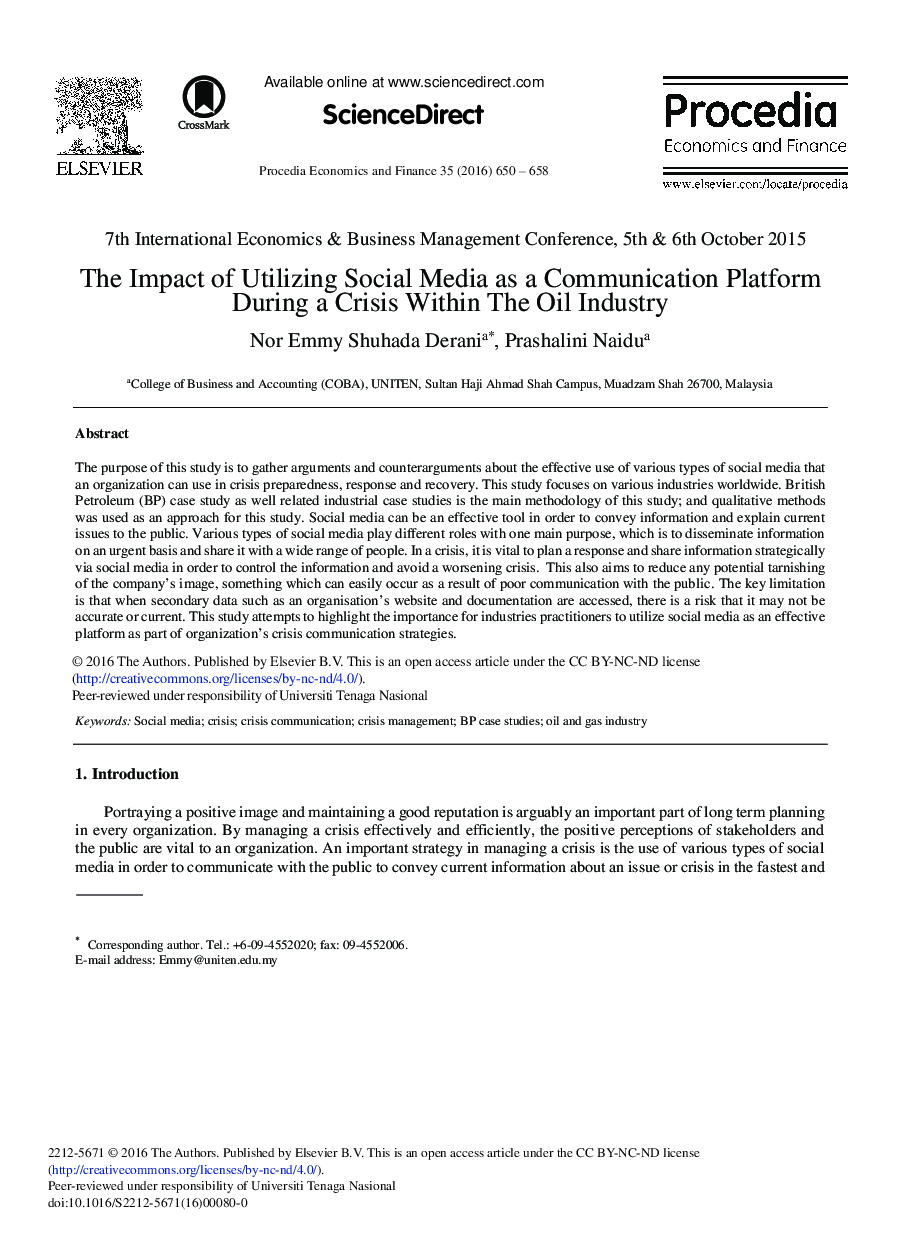| Article ID | Journal | Published Year | Pages | File Type |
|---|---|---|---|---|
| 979894 | Procedia Economics and Finance | 2016 | 9 Pages |
The purpose of this study is to gather arguments and counterarguments about the effective use of various types of social media that an organization can use in crisis preparedness, response and recovery. This study focuses on various industries worldwide. British Petroleum (BP) case study as well related industrial case studies is the main methodology of this study; and qualitative methods was used as an approach for this study. Social media can be an effective tool in order to convey information and explain current issues to the public. Various types of social media play different roles with one main purpose, which is to disseminate information on an urgent basis and share it with a wide range of people. In a crisis, it is vital to plan a response and share information strategically via social media in order to control the information and avoid a worsening crisis. This also aims to reduce any potential tarnishing of the company's image, something which can easily occur as a result of poor communication with the public. The key limitation is that when secondary data such as an organisation's website and documentation are accessed, there is a risk that it may not be accurate or current. This study attempts to highlight the importance for industries practitioners to utilize social media as an effective platform as part of organization's crisis communication strategies.
